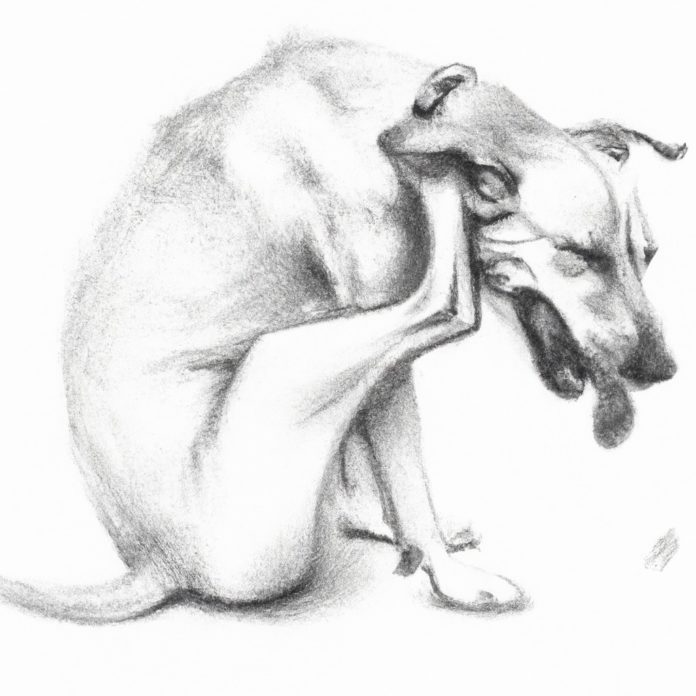Dear VetBabble: Why is My Dog Scratching, Licking, and Chewing her Skin with Hair Loss and a Bad Smell?
As a loving pet owner, it can be concerning when your dog is constantly scratching, licking, or chewing their skin, experiencing hair loss, and emitting an unpleasant odor. There are several potential causes for these symptoms, so let’s dive into the possible explanations and steps you can take to help your furry friend feel better.
Potential Causes and Initial Steps
One possible explanation for your dog’s discomfort could be a severe allergy, as you mentioned. However, fleas or mites could also be the culprits. To start addressing your dog’s needs, you should first treat them with a high-quality flea treatment product, such as Advantage, to rule out any skin parasites. Then, it’s important to schedule a visit with your veterinarian to perform a skin scrape. This procedure might reveal an infection or a mite infestation. To better understand allergies and their symptoms, you can read our article on Dog Allergies.
Treating Allergies and Additional Testing
If the skin scrape comes back negative for infection or mites, the next step is to treat the allergy symptomatically and attempt to pinpoint the cause for the allergy. Your veterinarian may prescribe medications to repair the skin lesions, such as steroids and antibiotics. Simultaneously, you should begin a prescription hypoallergenic diet for at least two months. Our article on Simple Tips for Itchy Dogs offers helpful advice for managing itchiness caused by allergies.
If your dog’s symptoms don’t improve after addressing the allergy, it might be worthwhile to consider other potential causes, such as mange. Check out our article on Does My Dog Have Mange? for a closer look at this skin condition and how to identify it.
Long-Term Allergy Treatment Options
In case your dog doesn’t show significant results following the initial treatment and change in diet, you and your veterinarian should contemplate introducing a long-term allergy treatment plan. Two examples of medications often employed for this purpose are Atopica and Apoquel. Given the complexities involved in pinpointing your dog’s specific needs, it is vital to discuss potential treatment strategies with your veterinarian thoroughly.
Hair loss alone can be an unsettling symptom for dog owners to witness. By reading our article on Why is my dog’s hair falling out?, you can learn more about alopecia, allergies, and other factors that might be contributing to your dog’s hair loss concerns.
In conclusion, although it’s distressing to see your beloved pet suffer from skin irritations, hair loss, and bad odors, there are several measures you can take to help them find relief. The key is to investigate the possible causes, consult with your veterinarian, and devise a tailored treatment plan that suits your dog’s specific needs, ranging from flea treatments to dietary changes and long-term allergy maintenance. With patience and care, you can help your dog regain their comfort and happiness.









